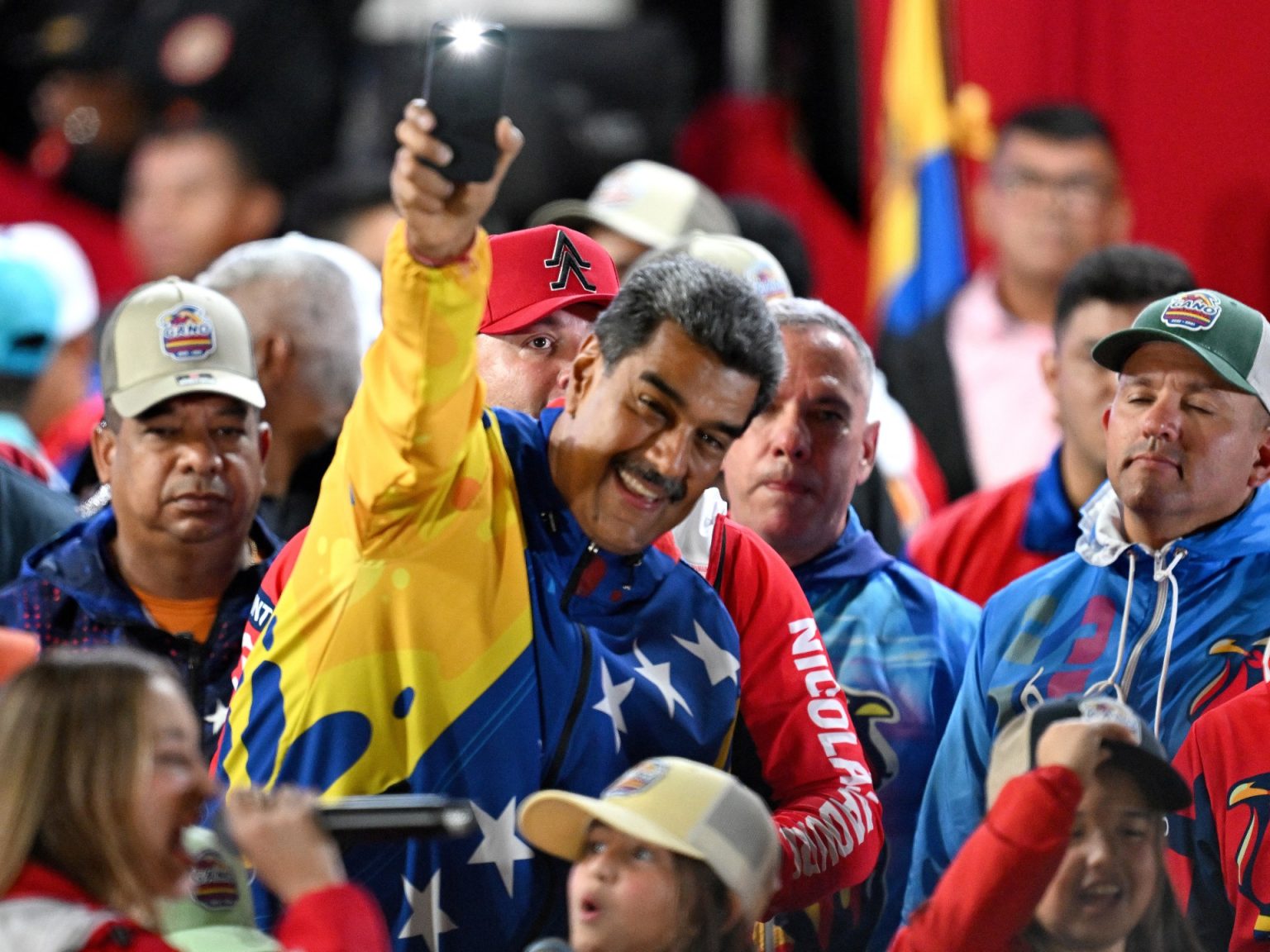Incumbent Nicolas Maduro has won the presidential election in Venezuela, securing a third six-year term with 51.2 percent of the vote. The opposition candidate, Edmundo Gonzalez Urrutia, received 44.2 percent. The electoral authority, which is controlled by Maduro loyalists, did not immediately release the tallies from each polling station. Opposition representatives had collected tallies showing Gonzalez in the lead, leading to dispute over the results. Maduro claimed his re-election was a triumph of peace and stability and that the voting system was transparent. His presidency began in 2013 following the death of his mentor, Hugo Chavez.
The opposition campaigned to end the economic crisis and exit polls indicated they had a strong chance of beating Maduro. Maria Corina Machado, a popular opposition leader, was excluded from the race by authorities loyal to Maduro, and Gonzalez took her place on the ticket. Machado urged voters to be vigilant during the counting process, claiming Gonzalez had won 70 percent of the vote. Both Machado and Gonzalez disputed the official results and accused the government of violating rules and norms. While they vowed to continue their struggle, they emphasized the importance of peaceful actions and not inciting violence among their supporters.
The election on Sunday was part of a deal between the government and the opposition, leading the United States to ease sanctions temporarily. However, the US, along with the EU and several member states, expressed concerns over the transparency of the vote. US Secretary of State Antony Blinken stated that the results did not reflect the will of the Venezuelan people and called for fair and transparent counting of the votes. Analysts and leaders in the Americas also doubted the validity of the results, with some expressing support for Maduro while others condemned the election as fraudulent.
There were calls for the Venezuelan opposition to document any alleged fraud and make their findings public in order to challenge the official results. Some leaders, like Costa Rica’s President Rodrigo Chaves and Peru’s Foreign Minister Javier Gonzalez-Olaechea, rejected the election results and recalled their ambassadors from Caracas. Others, such as Chile’s President Gabriel Boric and Uruguay’s President Luis Lacalle Pou, criticized the counting process as flawed. However, Maduro found support from allies in Bolivia, Honduras, and Cuba. Cuban President Miguel Diaz-Canel praised Maduro’s victory against the opposition and China’s foreign ministry congratulated Maduro on his re-election.
The opposition’s claims of victory based on opinion polls and the need for transparency in the electoral process have raised doubts about the legitimacy of Maduro’s win. International observers and leaders have expressed skepticism and called for further investigation into the alleged fraud. Despite Maduro’s re-election, the political situation in Venezuela remains volatile, with ongoing tensions between the government and the opposition. It is unclear how the dispute over the election results will be resolved and what implications it will have for the country’s future.


